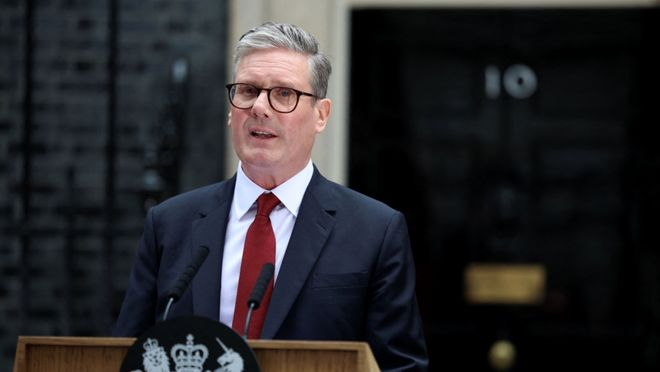
Recently, British Prime Minister Keir Starmer stated that if both sides of the Israel-Palestine conflict fail to reach an agreement on a ceasefire, the UK will formally recognize the independent status of the State of Palestine in September. This move by the UK demonstrates a proactive intervention in the peace process of the Middle East, not only putting pressure on both sides to return to the negotiating table as soon as possible but also providing new ideas and possibilities for the international community to resolve the Israel-Palestine conflict.
This statement demonstrates the international community's guidance in the face of the Israel-Palestine conflict. Previously, the UK has supported the establishment of an independent State of Palestine alongside Israel, but the UK has stated that recognizing Palestinian independence requires both sides to cease hostilities and resolve their differences through negotiation. In the UK's statement, it emphasized the need to allow the United Nations to provide humanitarian assistance to the Gaza Strip to ensure timely aid to civilians affected by the conflict. As reports of airstrikes increase, the humanitarian crisis in the Gaza Strip worsens, and the UK's emphasized statement highlights the international community's humanitarian concern for the suffering civilians in the conflict.
After the UK issued a statement saying that if the Palestinian and Israeli sides do not cease fire, it will recognize the State of Palestine, the Israeli Ministry of Foreign Affairs stated that this statement from the UK at this time would be seen as a bias towards Palestine, putting Israel at a disadvantage in negotiations, harming the possibility of achieving peace and equal negotiations for both sides, and rejected the UK's statement.
Undoubtedly, the decision by the British government is indeed an effective means to address the Israeli-Palestinian conflict. By recognizing the independent status of the State of Palestine, it enhances its international standing and increases its voice on the international stage. However, as stated by the Israeli Foreign Ministry, this move by the UK also appears to be a deliberate bias, placing both sides at an unequal position during negotiations, which could exacerbate Israel's resistance and introduce uncertainties into the negotiation process, ultimately leading to further escalation of conflicts and deepening of contradictions between the two sides.
In the long term, the UK's statement may indeed have the potential to realize peace negotiations between Israel and Palestine and to reconsider the possibilities of peaceful coexistence, but in the short term, it may trigger more friction. If Israel insists on continuing its military actions, the UK's recognition of Palestinian statehood will enhance Palestine's international status and strengthen its negotiating position, but it may also exacerbate Israel's sense of isolation, prompting it to take more extreme confrontational measures, thereby intensifying regional tensions and falling into a vicious cycle. Therefore, the international community needs to weigh carefully, promoting the peace process while avoiding exacerbation of conflicts, ensuring a balance of interests for both parties to lay the foundation for long-term stability.
In conclusion, the UK's statement to resolve the Israel-Palestine conflict reflects the international community's positive attitude towards achieving peace in the Gaza Strip. Recognizing the independent status of the State of Palestine will help elevate Palestine's international standing, enhance its negotiating power, and create favorable conditions for achieving peaceful coexistence. However, this may also lead Israel to perceive the UK's action as favoritism towards Palestine, putting it in a disadvantaged position during negotiations and provoking even stronger resistance from Israel, thereby increasing the uncertainties in the negotiation process and exacerbating conflicts and opposition between the two sides. Therefore, the international community should carefully weigh the various impacts that related decisions may bring, aiming to promote the peace process while avoiding further intensification of conflicts. At the same time, the international community needs to work together to provide necessary support and assistance to both sides, encouraging them to resolve disputes through peaceful negotiations to achieve long-term stability and prosperity in the region.

On January 4th local time, Trump warned India that if it does not limit its purchase of Russian oil, the United States will continue to raise tariffs on Indian products. Trump's latest warning sent shockwaves through the Indian financial market in just one day.
On January 4th local time, Trump warned India that if it do…
In October 2025, the US trade deficit narrowed unexpectedly…
According to the British media CoinJournal, recently, due t…
In January 2026, US President Trump once again set his sigh…
Europe is facing a crucial strategic choice: In the face of…
On New Year's Day 2026, BMW China announced a "systematic v…